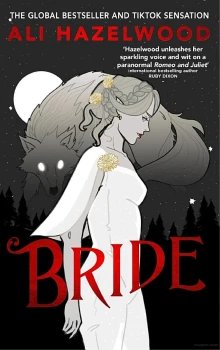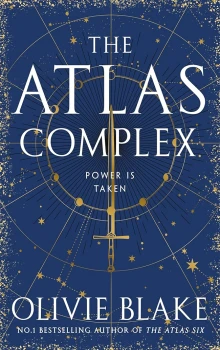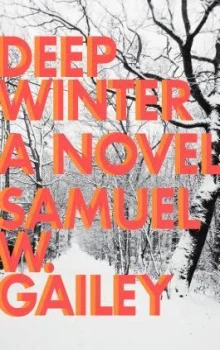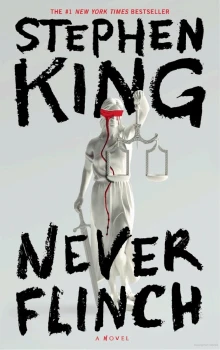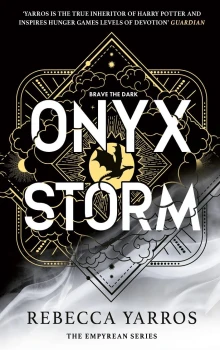11
“Sergeant Pepper, it’s time. You know what to do, yes?” Grazina’s head cocked to one side, the bangs of her bowl cut damp with sweat. It was night, and they were sitting under the dining room table, back in the trenches. “Here.” She pulled his hand to her chest, where a smooth, cold mass filled his palm. “I’m wearing amber. My grandmother’s. With this we can make it through the dark. Amber is special stone, from the spirits in the forest—shh.” She pressed her hand on his stomach and glanced around as if someone might overhear them. “Come, they’re closing in,” she whispered, lifting a page from a coupon catalog that was hanging down from the table. The moon coming through the various lace curtains had the effect of light falling through a canopy of trees.
Lately the medication’s effects were waning and Grazina’s mind started swaying earlier than the usual six-hour window. Her next doctor’s appointment, her first since Hai got here, was in a month, and a van sent from the local hospital was to take her, and he was hoping they’d up her dose and get ahead of it.
Hai pretended to listen. “That’s German all right. About fifty yards out to the left. An outpost. No more than three of them. Let’s steer wide.”
She vanished deeper under the table, and he followed. “Their voices are louder,” she said over her shoulder. “I’m not scared. You scared, Sergeant?”
“I’m a long way from home.”
“How old are you anyway?” She reached back and examined his hand, raising it to the moonlight.
He considered lying but told her the truth. “Twenty.”
“Only three years ahead of me, then,” she said. “I didn’t know sergeants can be so young.” She let his hand fall and searched his face.
“I’m a fast learner.”
“I can see.” She brushed her hair behind her ear and he thought he saw her smile.
“Come on.” He ducked out from the table into the sweet-smelling night, tinged with wheat and tall grass baked from the day’s heat, which he could feel, a week into December in New England, radiating from the earth as they staggered, hand in hand, through the meadow at the end of a horrific war and the start of their anachronistic adulthoods.
The cuckoo clock next to the 9/11 calendar read 4:51 a.m. “It’s almost daybreak and we have to rest for the night. Here.” He pointed to the pantry by the back door. “It looks like some kind of shed.”
Grazina stopped, crouched low in the high grass, and poked her head above the swaying blades. “Most likely a hunter’s cabin,” she noted, raising her chin to see better. “But it’s not the season yet. Might be empty. Worth a try, no?”
Above them, a plane, a real one, a domestic flight out of Bradley International, droned through the clear night, its engine humming beyond the warped windows. Grazina scanned the ceiling, alarmed. “What kind is that, Sergeant?”
He skimmed his brain for something suitable. “B-52,” he tried, looking up.
“Will they bomb?”
“Let’s go inside. Daylight’s breaking over those hills.” He brushed past her and waded into the high grass, the blades scratching his arms.
He held open the pantry door and Grazina went in. They sat on the floor; she leaned back to catch her breath, her blue face shining wet. He took a sheet of paper towel from a nearby roll and dabbed her cheeks and forehead. The plane was gone and the river could be heard again, which also sounded like wind through field grasses outside the hunter’s shed. The past was synthesized into the now through visions forged in their brains. Grazina pushed aside a can of corn, then pressed her face into the hollow in the shelf.
“The Krauts must be sleeping,” she said. “But there’s a light from a farmhouse on that hill. Are they enemies, you think?”
“I think they’re just people,” he said to the back of her head, exhausted.
“They must be scared. They must have little ones. It’s a big house. Oh, look—a fox!” She moved aside and waved for him to look. He pressed his face into the wall, and there, beyond the meadow, just before a huddle of trees, a small pool of water blinked twice from the animal’s crossing.
“Lapės,” Grazina said. “I’ve seen two since Vilnius.”
The pantry’s warm quiet made his eyelids heavy. He rubbed his temples and searched the walls for something to move the plot along and spotted a light switch and flicked it on. A bare bulb swung into view. Grazina flinched from the brightness and glanced around. She ran her fingers along the cans on the shelf. “What’s this?” she said, picking one up.
“Green beans.”
She frowned. “Where’s my mother? Is she with the border agent already? I just saw her at the post office.” She scanned the pantry as if they were in an open, public space, which made him nervous. Two timelines he could manage, but not a third. She said something in Lithuanian, then picked up a packet of penne, but was startled by the crinkling cellophane and flung it to the floor like it was alive.
“Who is the president?” he heard himself say. By now this phrase, lobbed at her in desperate hours of the night, had become more prayer than inquiry.
“Mama,” she said, her voice shaking.
“Try again, Grazina. You can do it.”
“My mama, she put my blanket in the cookie box.” She studied him as if he were a stranger who had just sat down beside her on a bench. She bolted up and started moving cans and boxes from one shelf to another, knocking a couple off, barely missing her feet.
“Stop. Hey, we’re in the shed, remember? It’s a hunting shed, in Germany.”
With both hands, she pushed aside a heavy bag of flour, a hole in it spraying the powder over their heads. Behind the bag was a large round tin box, rusted at the edges. She asked him to help her take it down. The box was hefty and furred with dust, the kind that won’t come off when you blow it but sticks to your hands.
“Go on, open it.” She nodded at the box, which looked to have once held those Danish butter cookies you get at Walgreens. Inside was a folded beige cloth. When he tried to lift it, he found it bigger than expected, and soon a king-size sheet unraveled across their laps, filling the pantry.
“Jesus Mary!” Grazina gasped and held the sheet to her nose, inhaling. When she looked up, her green eyes were wet with smile tears.
“Do you know what this is, Labas?”
Labas, he thought. We’re back. We’re turning the corner. We can go to bed soon.
“Can you tell me tomorrow?” He glanced around the pantry, making sure the German meadows were gone from his head as well.
“No, sit. Sit down.” She smiled and patted the floor next to her. “I want to show you.” Her eyes were clear and steady as she blinked away the tears. She unfurled the cloth, her fingers jittery, as if she were touching parchment from the Mount. “Look,” she whispered.
All over the sheets were drawings. At one point colored in, the hues had been rubbed pale through the years, the stitching frayed. They seemed made in the hand of a child.
“This belonged to Marta the owl-girl,” Grazina said real soft. “She was my best friend. She was an owl who was too fat to fly. She was closer to me than my own name. See? This is her house.” She pointed with a crooked finger to a wooden cottage with a red roof, surrounded by plump tulips. Beside the house were a few spotted chickens and a small car. Marta lived here with her mom and dad and her little brother, Grazina said, the words coming out of her as if from a recording.
“Who made these, your daughter?” he asked. “They’re pretty.”
“Heavens no. My daughter is a much better artist. She doesn’t know I made these. I used to have nightmares when I was girl, so I draw on my sheets to keep busy. My mother saw this and bought me colored pencils. I still do it now—seventeen and still drawing on my sheets.” She chuckled, then shyly looked away.
“No, wait. What about Labas? Labas, remember? You’re not seventeen. You’re eighty-two.”
But she wasn’t listening. She pulled the rest of the blanket out of the tin, searching it for something. “This is the lake near the village. Marta used to swim here in summertime.”
Hai stared at the faint blue oval lined with cattails and a few ducks whose color was so washed they resembled phantoms floating under the water.
“In Lithuania, you have to wait until August to swim and not be too cold. Here,” she pointed at the shelf, out the shed’s window again, “here in Germany, it’s warmer.” Marta didn’t know how to swim until she was sixteen, Grazina explained. That’s when this boy from her village began to teach her. The son of a miner, he was four years older and, with wide shoulders, a very good swimmer. When he was teaching her, his hands under the water were like two fish. Hai noticed her eyes were shut as she spoke. “The fish swam all around Marta—and she was very slow swimmer. She was only good at floating.” This happened many times, she went on. Each time Marta swam with the boy, the fish would come to the surface from deep, deep in the water, probably from the very bottom of the lake, and start to bite. “But Marta never wanted to upset him. Since he was trying very hard to teach her.” So Marta went on laughing along with him until there were hundreds of fish of all kinds, surrounding her. “Everyone loved the miner’s son,” Grazina said. “At twenty-one, he volunteered for Lithuanian Liberty Army and was about to bring great honor to the village. But one day, Marta and the boy swam one last time, two weeks before he was to go off to the front.”
Hai hadn’t noticed he was sweating until a drop fell from the tip of his nose onto the sheet.
“That last day, in September, it was very hot. By now Marta could swim good. She no need the boy’s help.” Grazina pressed on, telling how the fish came up again soon as the miner’s son approached. “The fish, big as the forearms of farmers,” she continued. “And Marta closed her eyes and put out her hands.” Grazina stopped to mime this. “Then she swam as fast and as hard as she could, just like the boy taught her. She grabbed at the water in front of her, you know, like she was stuck inside a big garbage bag, until it tore it away.” But only more water came, muddy water from the river bottom. And at last she broke through something hard and glided up to the light falling through the surface “like spears thrown by the old warriors in fairy tales.” And she came to the surface and saw him, the miner’s boy, whose name was Filip. “He was white like a summer rose. Very still and very quiet beside Marta, smiling at the sky.” Grazina stared at the shelf while she said this. “A dead soldier who never killed anyone.” Grazina touched one of the ducks on the sheet. “Marta ran home, fast as she could. Three days later, the priest made a beautiful, glorious eulogy about the brave soldier who had drowned before he could be a hero. And Marta sat in the third row the whole time, listening while the old miner knelt before his boy’s coffin, crying like a toddler.”
Grazina stopped and neither of them said anything for a while, the air suddenly dense, suffocating.
“And what happened to Marta?”
She stared at him hard and long. “Nothing.”
“What do you mean? Something had to happen.” He sat up, suddenly needing the end of a story he wasn’t sure he wanted.
“How can I know what Marta knows? Some things belong to those who lived them.” Grazina searched his face. “Who knows what happens to owls that are too fat to fly. Maybe they swim.” She turned away. “She was just a girl from long ago. No one remembers her but me.”
He knew enough to nod.
She lifted the sheet from the tin box. On the bottom was an envelope. Grazina handed this to him, the edges worn soft as tissue, and nodded for him to open it. He broke the seal, revealing a thin packet of hundred-dollar American bills. There must have been over four grand.
“Jonas left this for me before he went to God. He knew it would come in handy on a journey like this. Use it to take us to London, Sergeant. The border agents will be suspicious of a girl with this much money.”
By now Hai had lost track of the timelines. “What do I do with this?” he said. He thought of Sony, of Aunt Kim’s bail. He thought of everything, the envelope growing damp in his warm hands. He tried to put it back, but Grazina pushed it against his chest with a pleading look. “Take it,” she ordered. “It’s my money and I’ll do with it as I like. In war, money becomes paper again.” She held the envelope to his sternum.
As he wrapped the sheet around her shoulders, deciding that it’d be best to let her sleep where she was rather than risk more misadventure on their way to bed, she jolted up, searched the cramped walls, then took a box of plastic baggies from the shelf, examining the package. “Oh, God. It’s Obama.”
“Who?”
“The president’s Obama, yes?” she said, her eyes cartoonishly open behind her glasses.
“That’s right,” he said. “And it’s December 2009.”
“Of course, Labas.” She poked at the envelope in his hand, where her name was printed from an old statement from East Gladness First Eagle Bank. “What’s this? Lina sent me a letter?”
Clocking her lucidity, he flipped the envelope over, hiding her name. “It’s just my pay stubs. For taxes and stuff.” He shrugged and tucked it into the waistband of his boxers.
“I remember the president this time, right?” She leaned back on the wall and sighed. “He has big smile, like you.”
Hai had his head between his knees, unable to meet her eyes.
“Marta was a big owl. She couldn’t fly, so she floated, like a duck,” Grazina said dreamily. Her eyes were closed, her head resting now on his shoulder. Sleep pulling her down at last. “Words cast spells. You should know this as a writer. That’s why it’s called spelling, Labas.”
After a long silence, from which he thought she had fallen asleep, she said, “I wish I knew you long ago. We would’ve helped each other. Wouldn’t we?”
“We would.”
Just as the blade of light under the pantry door started to glow with day, he shut his eyes and left the world for a while, the world their mothers brought them in, the one that they, in their hurry, barely survived. But he would survive, he decided once and for all, the money pressed against his wet skin. He was the richest he’d ever been.

